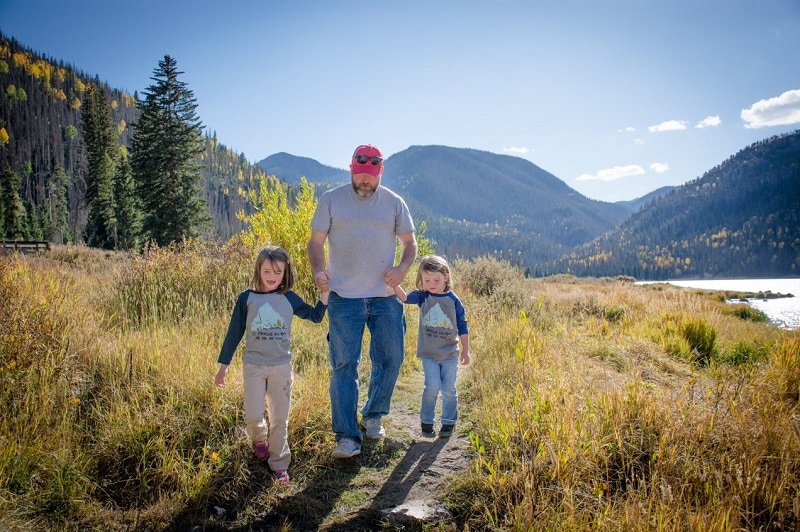Colorado School of Public Health – Rocky Mountain Prevention Research Center
Populations of Focus: children, families
Topic Areas: child development, cancer, improving social-emotional development and well-being of children and families in communities experiencing health disparities
Introduction, Mission, and Vision

RMPRC's vision is that children and families live in communities that promote healthy living and increase overall well-being.
The Rocky Mountain Prevention Research Center (RMPRC) is one of 26 Prevention Research Centers (PRCs) supported by the Centers for Disease Control and Prevention (CDC) for the 2019–2024 funding cycle. Each PRC is funded to establish and maintain their center and to conduct a core research project. PRCs may receive supplemental funding to conduct additional research projects and activities.
RMPRC’s core mission is to research how schools and communities can promote healthy living in communities with limited access to health-promoting resources. Its mission is achieved through community-engaged research with schools and communities across the Rocky Mountain region. Its vision is to create health interventions and programs that allow children and families to live in communities that support positive social-emotional, mental, and physical health and well-being.
Core Research
Each PRC uses a community-engaged approach to conduct one primary applied public health prevention research project called a core research project. Project activities include design, development, implementation, evaluation, and dissemination. PRCs use at least 50% of their CDC funding to conduct the project in partnership with communities.
RMPRC’s vision is that children and families live in communities that promote healthy living and increase overall well-being.
STANCE (Linking Systems To address ACEs iN Childhood Early on)

The STANCE project builds on a long history of partnerships in the rural San Luis Valley, state partnerships and the need for expansion to other states within the region.
RMPRC’s core research project for the 2019–2024 funding cycle is designed to reduce the likelihood of families passing on adverse childhood experiences (ACEs) to the next generation. ACEs are modifiable risk factors—like divorce, domestic violence, abuse, or neglect—that have a deep and lasting effect on a person’s overall health well past childhood. STANCE is a community-engaged, multilevel program designed to reduce the negative effect of ACEs among residents of the San Luis Valley of Colorado.
The STANCE program has three primary components:
- An assessment of ACEs for children aged 0 to 5 and their primary caregivers.
- The use of the pyramid model in early care and education settings to promote positive social-emotional development in children.
- A community-level social network analysis to leverage and strengthen the system of care to better meet the needs of children and families struggling with a high number of ACEs and associated health outcomes.
The goal of this intervention is to build capacity across local community partnerships to improve the lives of vulnerable children.
Additional Research
PRCs may receive supplemental funding to work on additional research projects each funding cycle. These Special Interest Projects (SIPs) focus on a variety of health topics or gaps in scientific evidence. PRCS can also conduct additional research as part of SIP Thematic Research Networks, which are groups of PRCs working together on related health topics.
PRC Vaccine Confidence Network (PRC VCN)
In April 2021, CDC funded a 12-month award to all 26 PRCs to form the PRC VCN in support of the agency’s Vaccinate with Confidence strategy for COVID-19. As part of this network, RMPRC is examining vaccine hesitancy to find ways to promote vaccine confidence, increase vaccine uptake, and reduce disparities in Latinx and rural communities and in young people. The goal is to reduce the incidence of COVID-19 in the United States.
RMPRC’s strategy includes partnerships with state organizations and local organizations, clinics, and health centers. It also plans to work with key collaborators to use short video modules to strengthen state and local data collection. The modules train health care providers in clinics and community hubs how to use motivational interviewing techniques.
Validation of Self-Reported Vaccination Among Adults
This SIP study will estimate measures of validity—including sensitivity, specificity, and net bias—in self-reported vaccine status for eight vaccines: influenza, pneumococcal, herpes zoster, tetanus-diphtheria, tetanus-diphtheria-pertussis, human papillomavirus, hepatitis A, and hepatitis B. These measures will then be used to adjust estimates produced by self-report surveys. The result will be better data to guide programmatic decisions and efforts to increase the uptake of vaccines across the United States.
Cancer Prevention and Control Research Network (CPCRN) Collaborating Center
RMPRC is part of a CPCRN research project called Cancer RESULTS (Resources, Engagement, and Support for the Use of Lifetime Tailored cancer prevention Services). This project works with key stakeholders to identify gaps in meeting current evidence-based guidelines for risk-appropriate care. Participating PRCs seek to develop and share an intervention designed to increase the use of these guidelines in populations with high cancer rates, including rural, minority, and medically underserved communities.
Location: Aurora, Colorado

Co-Principal Investigator: Jini Puma, PhD
Email: jini.puma@cuanschutz.edu
Co-Principal Investigator: Jenn Leiferman, PhD